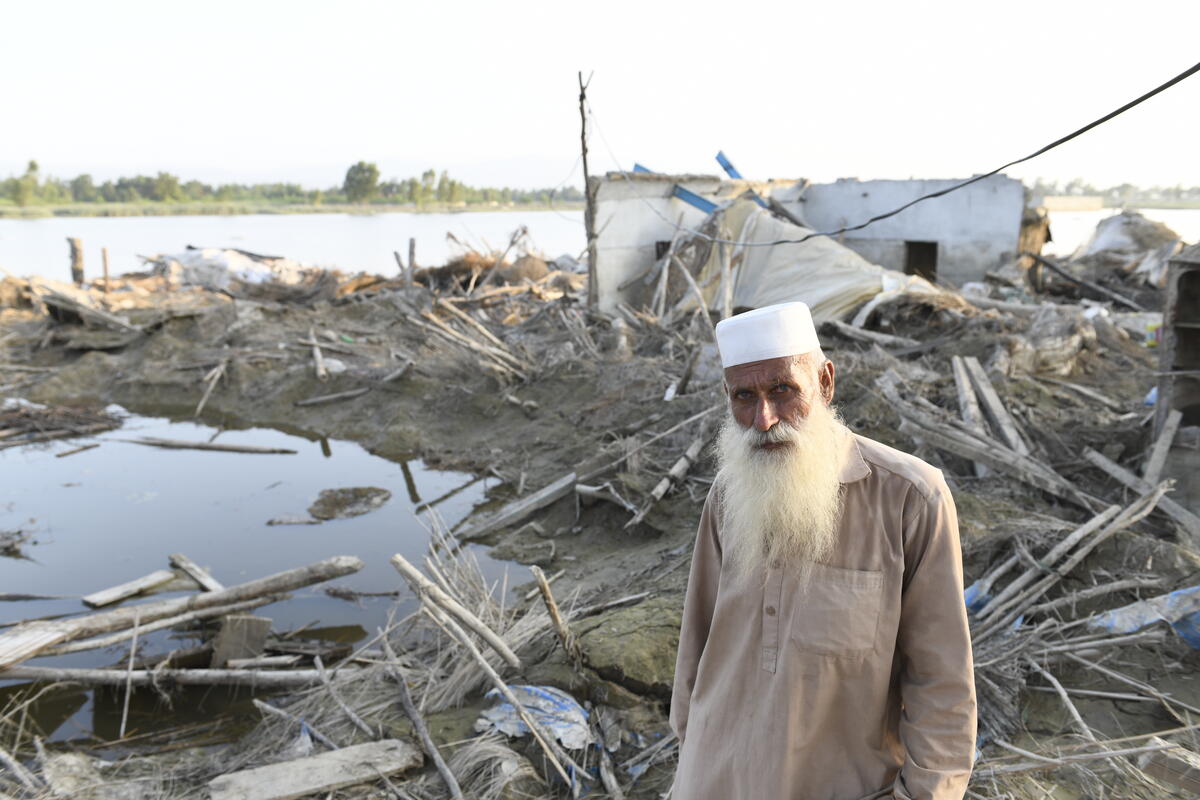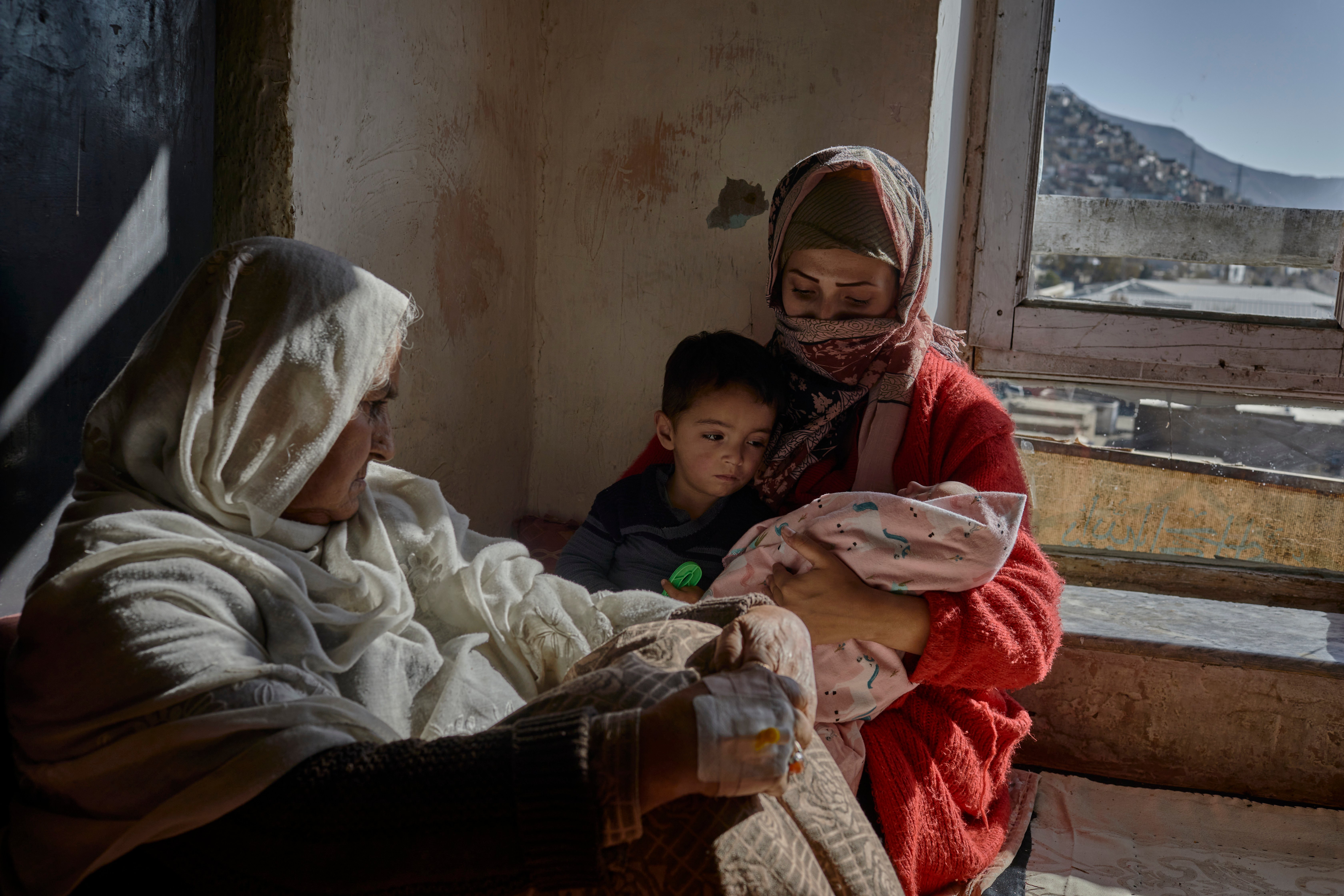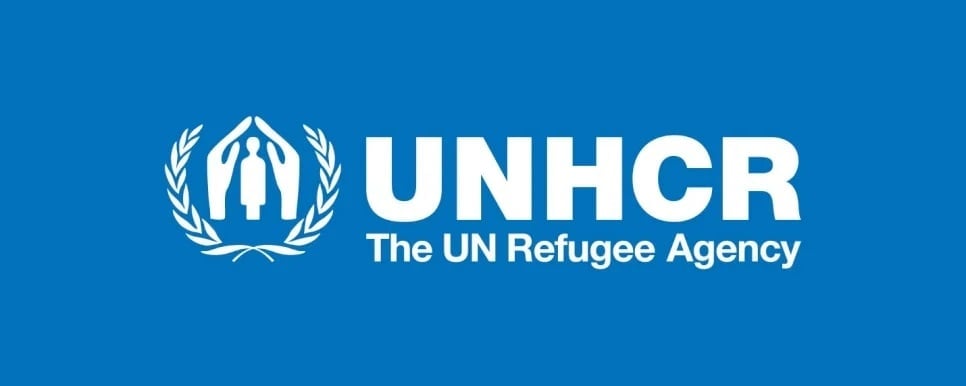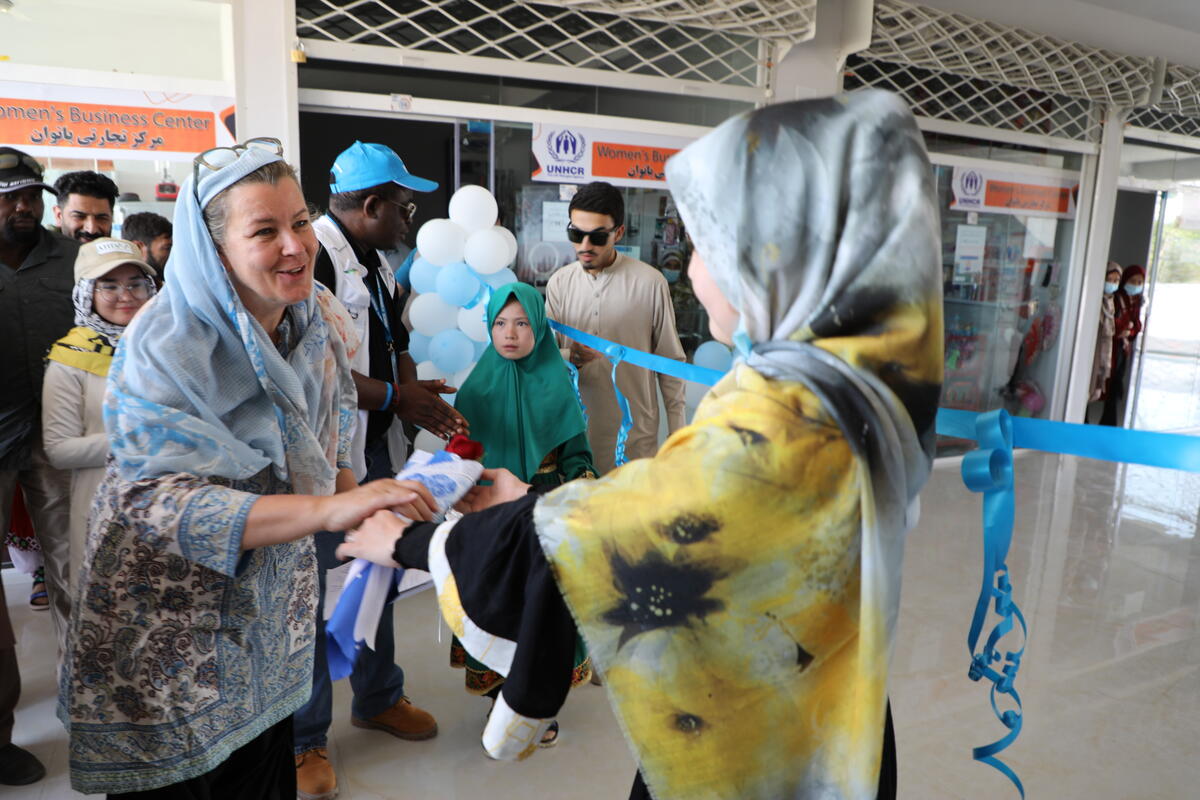UNHCR gets green light to register Afghans fleeing hunger and insecurity while record numbers return home
UNHCR gets green light to register Afghans fleeing hunger and insecurity while record numbers return home

Afghan refugees camped at the Chaman border.
QUETTA, Pakistan, March 8 (UNHCR) - UN refugee agency staff in Pakistan's Baluchistan Province were told on Friday that more than 10,800 new Afghan refugees who have been camped in squalid conditions for more than three weeks at the Chaman border crossing could be registered.
"We got the green light to take in the refugees," said UNHCR's Senior Field Coordinator Codé Cissé in Quetta. "This is excellent news."
Some of the Afghans stuck at Chaman have fallen ill, Cissé said. Doctors from the medical relief agency MSF working at the makeshift encampment were treating 11 cases of measles among the new arrivals.
Cissé said that the thousands of Afghans waiting at Chaman would be moved to the agency's Mohammed Khele camp some 80 kilometres from Quetta, since other newly established refugee camps closer to Chaman were suffering from a lack of water.
Pakistani authorities had balked at registering new refugees on February 21 following a surge in the number of Afghans fleeing hunger and also attacks by bandits targeting some minority ethnic communities in the north of Afghanistan. More than 47,000 people have been registered at Chaman since the end of December.
Last week, UNHCR dispatched 45 truckloads of aid to southern Afghanistan's Kandahar province to try to avert further movements out of the impoverished region.
But as thousands of Afghans fled to Pakistan, many others have been flocking home since the new interim authority took power in Kabul in December.
The UN refugee agency said that return operations have helped ever-increasing numbers of Afghans repatriate over recent days, with more than 5,700 persons helped home yesterday during the four-day-a-week operation.
Returnees trucked home as part of the joint UNHCR-Afghan Interim Authority repatriation efforts begun in the last week include Afghans from Pakistan, as well as people displaced within Afghanistan.
"Over the past week we have returned more than 15,600 Afghans, most of them refugees who repatriated from Pakistan, but also 1,700 displaced people who were returned to the Shomali Plain after living for the last three years in Kabul's squalid former Soviet embassy compound," UNHCR spokesman Kris Janowski told a news conference in Geneva.
The UNHCR-assisted repatriation initiative from Pakistan has been rapidly gathering momentum, Janowski said. Some 4,700 people - 909 families - arrived in Afghanistan on Thursday in 361 vehicles.
Since the voluntary repatriation initiative from Pakistan got underway, some 14,000 Afghans have returned home under the programme that gives each spontaneous returnee $20 upon their arrival in Afghanistan. Families also receive a returnee kit with a plastic tarpaulin, blankets, a sleeping mat, quilts, tools and other items along with 150 kilogrammes of food from the UN's World Food Programme.
UNHCR also briefs the Afghans about the danger posed by land mines scattered throughout their homeland and counsels them about the precarious security situation in some parts of Afghanistan, Janowski said.
"We tell them to avoid some provinces, including Paktia, Khost, Paktika, Zabul, Uruzgan, Nimroz, Helmand, Farah and areas like Tora Bora in the east and Sholgara in the north," Janowski said. "These areas remain prone to banditry, open fighting, or even ethnic-oriented attacks against minority communities," he added.
Janowski said that despite being advised by UNHCR staff not to travel at night, a group refused to heed the warning and had their truck looted by bandits on Tuesday night outside Jalalabad.
In Kabul, UNHCR and the Afghan government continue to oversee the return of displaced Afghan families from the ex-Soviet embassy compound back to their villages on the Shomali Plain.
In the past two days, over 2,000 displaced people have gone back to Shomali, Janowski said.
Over the next two weeks, UNHCR plans to help up to 15,000 displaced people to leave their squalid quarters in the ageing compound and go back to Shomali. They receive the same assistance package that refugees repatriating from Pakistan get, with WFP distributing food aid and the International Organization for Migration providing transport.
UNHCR has appealed for $271 million to care for 3.5 million refugees in Iran and Pakistan and to help 1.2 million Afghans home this year.









